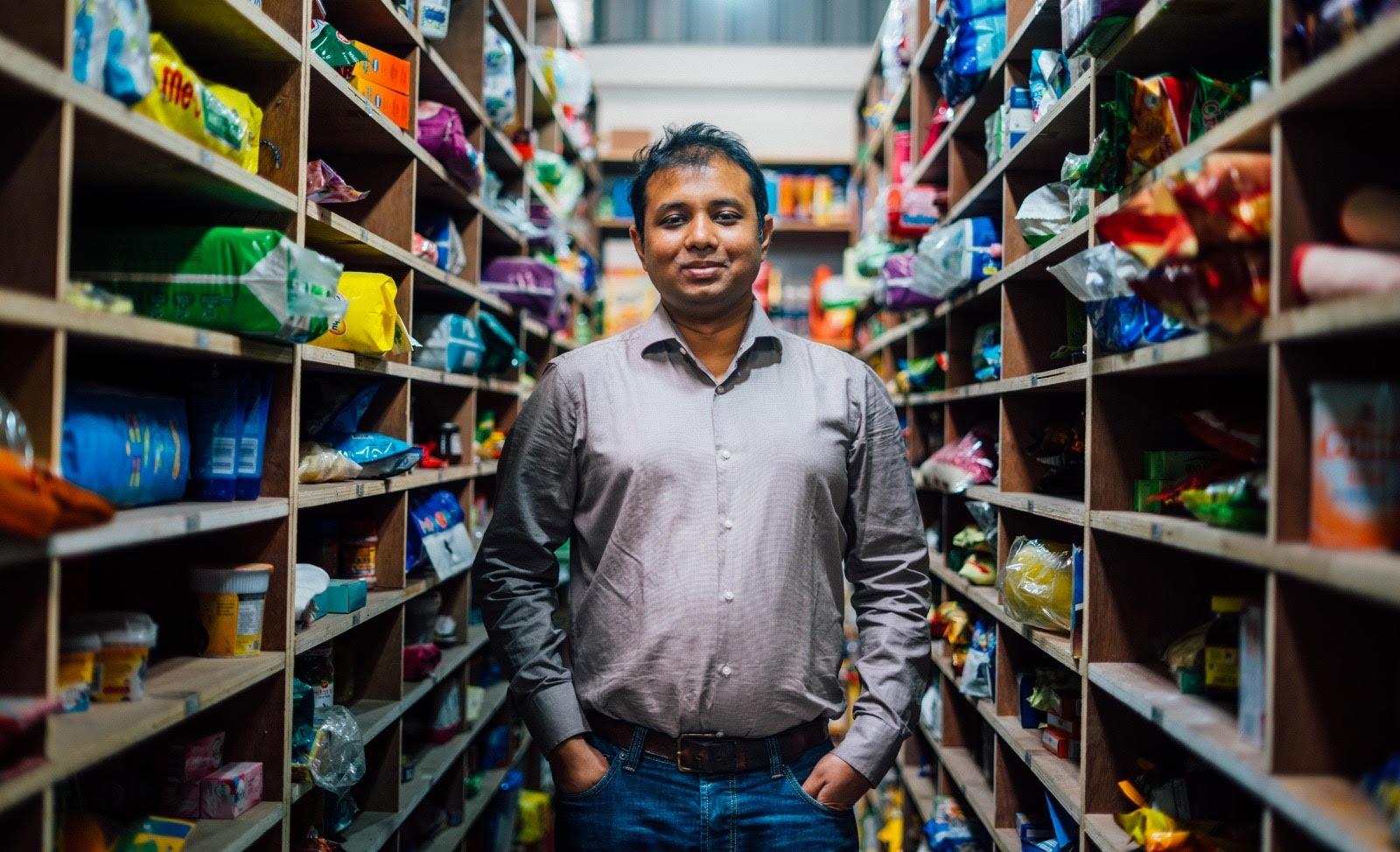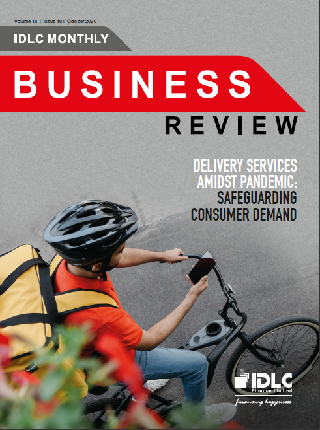
Mr. Waseem Alim, Co-founder & CEO, Chaldal
Interviewed By Bonnishikha Chowdhury, MBR Team
MBR: Due to the pandemic there was a sudden surge in online grocery shopping, what major initiatives have you taken to cater that atypical need?
Mr. Waseem Alim: We were serving 2500 orders pre covid. During covid the orders surged 5 times. We were getting more than 10,000 orders a day. The systems did not hold up very well and service quality went down. We took the following steps to deal with covid:
We did not want the virus to spread across our warehouses. In addition to taking extreme precaution and focusing on training, we also decided to separate out the workforce. Given that we have distributed warehouses, we ensured that no employee moved between two facilities.
The senior management team moved to a hotel for 7 weeks during COVID, so that we could keep our families safe.
There was a lot of fear among our employees, we communicated heavily through different digital mediums with each of our employees. In addition the management team went “live” several times during a week to boost employee morale.
We anticipated supply chain weakness and worked closely with major partners to ensure our stocks were full. This was especially true for critical supplies.
We limited our product offering in order to increase processing times.
We have doubled our warehouse footprint since COVID started. This allows us to deliver more quickly. This was especially challenging in COVID because there was a shortage of supplies and skilled workers.
We deployed new software that allowed our warehouses to increase output. We worked closely with Police and other emergency services to ensure that there was proper communication, and our delivery persons did not face any issues.
MBR: Can you share some statistics with us on business performance before and after the pandemic started?
Mr. Waseem Alim: We were serving 30,000 families in Dhaka each month prior to COVID. Now we serve more than 60,000 families in Dhaka.

MBR: What major challenges are you facing now while providing delivery services in this new normal situation and how are you dealing with it?
Mr. Waseem Alim: The new normal requires our workforce to have greater awareness. We have doubled down on training and safety precautions. We realize that we are a service that slows down the flow of virus, and the last thing we want is to become a vector for the virus.
MBR: A lot of new e-commerce and super shops are also providing grocery deliveries now. What strategies are you adopting to deal with such market penetration?
Mr. Waseem Alim: I think the grocery market is way too big for us to be concerned about competition. We welcome the entry of these service providers as they will help to educate the market about ecommerce. We will strive to remain the fastest, cheapest and the best consumer offering for grocery delivery and we hope to survive on the basis of merit and quality of service.
MBR: According to consumer feedback, the sudden surge in demand caused delay in grocery delivery in some cases. Was there any impact of such a situation on your client base?
Mr. Waseem Alim: During the months of March, April and May we were simply unable to cope up with the demand. We disappointed a lot of our customers for sure. However, we have recovered significantly. Right now, our on-time delivery rate is 90%. We have seen significant improvement in service level in the past few months.
MBR: Do you think in the post pandemic world, online grocery purchase will still be growing or it will go back like before Covid?
Mr. Waseem Alim: The pandemic has educated the customer. I do not think it will go back to pre-Covid scenario. We are still seeing much for eagerness from consumers to try "online shopping". Customer acquisition costs have come down across the board -- and that is bound to have long-term impact.

DELIVERY SERVICES AMIDST PANDEMIC : SAFEGUARDING CONSUMER DEMAND
Delivery Service to the rescue for consumer demand in a pandemic-driven world
A global event as prominent as the COVID-19 outbreak is likely to have an impact on the life style of people all over the world. Thus, a sudden change in consumer behavior is not surprising, rather rational. However, the success of a business depends on how fast and efficiently it can cope up with any unfavorable situation as risk is a fundamental element of any business. Before pandemic, the biggest vertical to deliver for logistic service providers of the country was e-commerce and f-commerce, covering around 60% of the whole pie which mostly consisted luxury products. After the corona virus outbreak, in no time the demand for grocery and essentials reached sky-rocket. The market leader, Chaldal was receiving 16,000 orders per day which was only 2,500 before pandemic. On the other hand, food delivery services dropped by 80% since all the restaurants were closed. However, when the whole country was staying inside home in order to minimize Covid-19 contamination, the logistics service providers were serving day and night to cater the sudden shift of the consumer demand. They responded to the situation swiftly by either extending their verticals or shifting their concentration to adjust the shift in market dynamics. As we are moving on with this new normal arrangements, the booming sectors must capitalize on this opening at once and focus on practices like consumer retention, that will make this growth more sustainable. On the other hand, a post COVID-19 boom for the verticals which are lagging behind, seems to be on the cards.
Sushmita Saha
Assistant Manager
IDLC Finance Limited